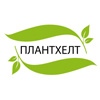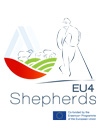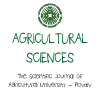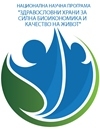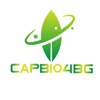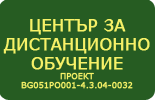Fundamentals of Viticulture
|
Course title: |
Fundamentals of Viticulture |
|
|
Course code: |
LGFOV |
|
|
ECTS: |
5 |
|
|
In-class hours |
Lectures: |
30 |
|
Laboratory work/Tutorials: |
30 |
|
|
Self-preparation hours |
Practical training: |
- |
|
Other: |
65 |
|
|
Total hours: |
125 |
|
|
Language: |
English |
|
|
Study cycle: |
Bachelor |
|
|
Semester: |
Winter & Summer |
|
|
Faculty: |
Faculty of Horticulture and Viticulture |
|
|
Name of the lecturer(s): |
Assoc. Prof. Lyudmil Angelov, PhD |
|
|
Mode of delivery: |
Face-to-face, distance learning or a combination of both |
|
|
Prerequisites: |
No prerequisites |
|
|
Learning outcomes of the course unit: |
Viticulture is a science that studies how to guide the development of the vine plant and to quality of grape yields. Through lectures and labs, students will acquire the necessary knowledge about the biology of the vine for the creation and cultivation of vineyards. In addition, they will have the opportunity to get acquainted with the economic and technological qualities of the most important varieties used in practice. |
|
|
Course contents: |
Lectures 1. Introduction to viticulture. A brief summary of the development and spread of vine culture. Status and trends in the world and Bulgarian viticulture. Biological cycles and phenophase development of the vine. 2. Morphological characteristics of the vine - root, stem, leaf buds, inflorescence and color. Requirements of the vine to the conditions of the external environment. Regionalization of vine varieties and their selection for the requirements of modern viticulture. 3. Propagation of the vine. Production technology of graft nurseries. Create a new vineyard. Site selection and preparation of the area. Time and method of planting. 4. Vine pruning. Objectives and tasks of pruning. Pruning systems and formations. Pruning in short, long and mixed fruit bodies. Ground formations (Cup, Guyot), middle stem formations (Cordon Royat), high stem formations (Guyot, Double cordon, Umbrella). 5. Agrobiological and technological characteristics of the most important dessert varieties, varieties for red wine and white wine, sparkling wines and wine distillates. Varieties with improved resistance of disease and adverse environmental conditions. Laboratory work/Tutorials 1. Botanical characteristics of the major grape varieties for the production of red and white wines, sparkling wines, dessert wines and wine distillates. Varieties with improved resistance to disease and low winter temperatures. 2. Pruning systems and formations. Pruning in short, long and mixed fruit bodies. Ground formations (Cup, Guyot), middle stem formations (Cordon Royat), high stem formations (Guyot, Double cordon, Umbrella). 3. Propagation of the vine. Production technology of graft nurseries. Create a new vineyard. Other – Course work The development of a specific topic in the field of viticulture and winemaking. For this purpose, the student must make a literature review using additional literature besides books of Viticulture. The volume of coursework should be up 10 to 12 pages. Developed course work is submitted to the instructor leading the course at the end of the semester. It is estimated, and it is considered in the final evaluation during the exam. |
|
|
Recommended or required reading: |
Кирил П., 2010. Учебник по лозарство. София. Winkler A.J., J.A. Cook, W.M. Kliewer, L.A. Lider 1962. General viticulture. University of California press. |
|
|
Planned learning activities and teaching methods: |
Monological explanation (lecture, presentation) Dialogue methods(conversation,discussion) Practical activities directly on the field |
|
|
Assessment methods and criteria: |
Exercises evaluation, interview |
|
 - Събития по случай 80-я юбилей на АУ
- Събития по случай 80-я юбилей на АУ
